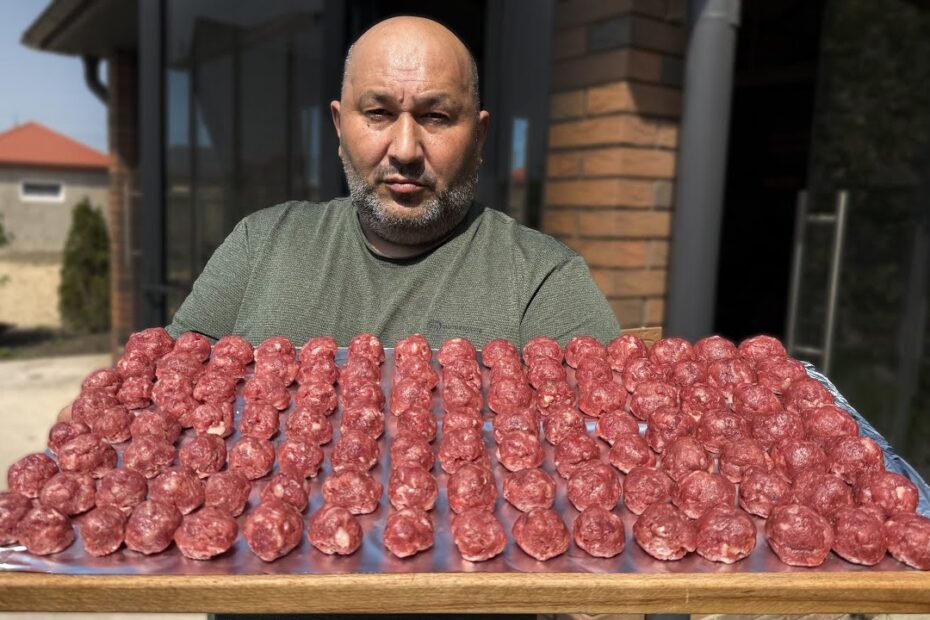Is the “Big Chef” Persona a Recipe for Disaster? The Hidden Costs of Celebrity Chef Culture
The Ego Soufflé That Never Deflates
Let’s face it: the “Big Chef” persona isn’t just seasoned with confidence—it’s marinated in hubris, garnished with a side of “Yes, I’ll sue you for stealing my avocado toast technique.” Celebrity chefs aren’t just cooking meals; they’re building empires on a foundation of truffle oil and fragile masculinity. But what happens when the quest for Michelin stars collides with reality? Spoiler: It’s less “mouthwatering masterpiece” and more “flaming crème brûlée torching the kitchen curtains.”
The “Big Chef” Starter Pack Includes:
- A trademarked catchphrase (™) you’ll mutter in your sleep
- An entourage of sous chefs who’ve forgotten their own names
- A PR team working overtime to scrub “incident with a lobster” from Google
When “Farm-to-Table” Becomes “Meltdown-to-Viral”
Behind the glossy TV close-ups of caramelized onions lies a cauldron of burnout, staff turnover, and $500 “artisanal” salt. The pressure to maintain a brand bigger than a triple-layer chocolate cake means many celebrity chefs are quietly drowning in their own demi-glace. Restaurants become “concept labs” where staff are overworked, critics are bribed with free bread, and the only thing “sous vide” is the chef’s grip on reality.
And let’s not forget the culinary cults of personality—because nothing says “healthy workplace culture” like a chef who thinks yelling at interns is a substitute for therapy. The result? A industry where “quiet quitting” means hiding in the walk-in freezer to cry… just long enough to avoid the next Instagram live session.
From Michelin Stars to Meteor Crashes
Celebrity chef culture isn’t *all* bad. Sure, it’s given us edible glitter and the existential dread of plating quinoa like it’s the Mona Lisa. But when chefs prioritize persona over people, the recipe sours. Imagine a world where “collaborative kitchen” isn’t code for “micromanaging a line cook’s parsley sprinkle technique.” Until then, we’ll keep watching the fireworks—preferably from a safe distance, with a side of ”I told you so” popcorn.
Big Chef, Big Problems: How Toxic Kitchen Culture and Overhyped Menus Are Ruining the Food Industry
When “Yes, Chef!” Turns Into “Why, Chef?!”
Picture this: a sweaty kitchen where the only thing hotter than the deep fryer is the head chef’s temper. Toxic kitchen culture isn’t just about burning crème brûlée—it’s about burning out humans. We’ve got ”respect the hierarchy” morphing into ”tolerate the tyranny,” where sous chefs develop kitchen PTSD and line cooks communicate exclusively in nervous eye twitches. The result? A revolving door of talent, because nobody wants to julienne carrots while being screamed at by someone who thinks they’re Gordon Ramsay’s long-lost twin.
Menus That Sound Like a Mad Libs Game Gone Wrong
Meanwhile, menus have become edible Instagram bait designed to confuse, not nourish. Why serve “spaghetti” when you can offer ”deconstructed heirloom tomato ecosystems atop hand-foraged wheat ribbons, kissed by artisanal air”? The obsession with overhyped, overwrought dishes has turned dining into a pretentious treasure hunt. Here’s what’s *actually* on your plate:
- Foam. Just… foam.
- A single microgreen that costs more than your Netflix subscription.
- The chef’s ego, thinly sliced.
The “Culinary Innovation” Death Spiral
The food industry’s chasing ”next-level dining” like it’s the last Uber out of a music festival. But when every dish needs to be a *revelation*, we end up with gimmicks masquerading as genius. Think: truffle oil on cereal, liquid nitrogen cocktails that give you frostbite, and entrées served on actual roofing tiles (because plates are for cowards). Meanwhile, the line between “chef” and “mad scientist” blurs until your dessert arrives with a waiver to sign.
The irony? Diners just want a meal that doesn’t require a thesaurus—or therapy—to enjoy. But until kitchens swap toxicity for teamwork and menus prioritize flavor over flair, we’ll keep getting culinary dystopia… one $28 “humble” potato at a time.
